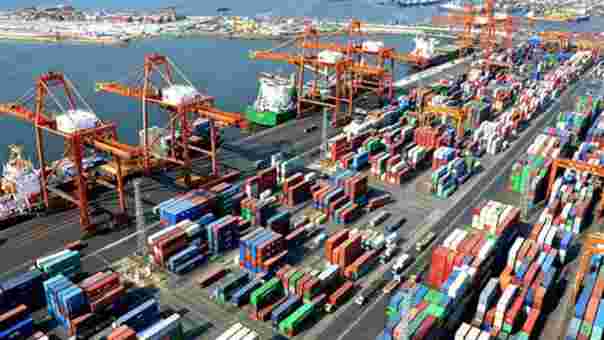Islamabad, October 2, 2025 – Pakistan’s merchandise trade deficit expanded significantly during the first quarter of the current fiscal year (July–September 2025), as import payments outpaced export earnings, according to the latest figures released by the Pakistan Bureau of Statistics (PBS).
The cumulative trade deficit for the three-month period surged to Rs. 2.65 trillion ($9.37 billion), marking a sharp increase of 34.68% in rupee terms and 32.92% in dollar terms compared with the same quarter last year, when the shortfall stood at Rs. 1.97 trillion ($7.05 billion).
Exports Decline, Imports Rise
Exports during July–September 2025 fell to Rs. 2.15 trillion ($7.60 billion), down by 2.27% in rupee terms and 3.83% in dollar terms from Rs. 2.20 trillion ($7.91 billion) in the corresponding period of 2024. The decline reflects subdued external demand and challenges faced by Pakistan’s major export-oriented sectors, particularly textiles, amid rising global competition and higher production costs.
On the other hand, imports grew significantly. Total imports for the quarter rose to Rs. 4.80 trillion ($16.97 billion), showing an increase of 15.18% in rupee terms and 13.49% in dollar terms compared to Rs. 4.17 trillion ($14.95 billion) in the same quarter of the previous year. The rise in imports was mainly driven by energy purchases, machinery, and essential food commodities, which continued to exert pressure on the current account.
Monthly Snapshot – September 2025
In September alone, exports stood at $2.50 billion, up slightly by 3.64% month-on-month but down 11.71% year-on-year. Imports, however, reached $5.85 billion in September, posting double-digit growth both on a monthly (10.53%) and yearly (14%) basis. This resulted in a monthly trade deficit of $3.34 billion, up 16.33% from August and a staggering 45.83% higher compared to September 2024.
Widening External Gap
The widening trade deficit highlights the persistent imbalance between the country’s foreign exchange earnings and spending. While the government has been working on policies to curb unnecessary imports and support export competitiveness, the sharp rise in essential import bills has overshadowed these measures.
Analysts warn that unless exports pick up in the coming months, Pakistan may face renewed pressure on its foreign exchange reserves and currency stability. The rising deficit could also challenge the government’s efforts to maintain fiscal discipline under ongoing economic reforms.
